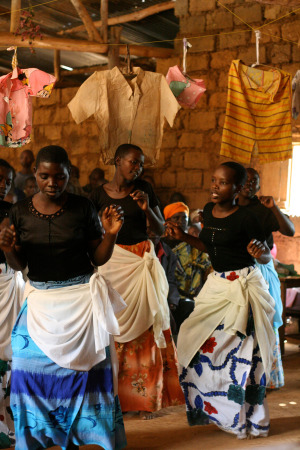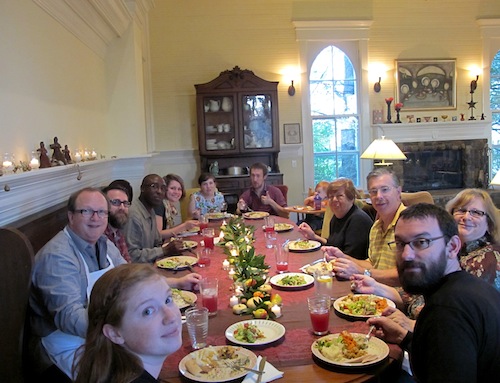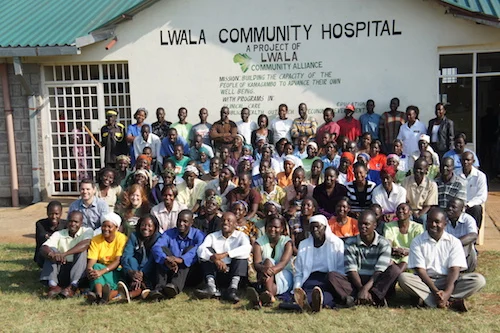The Graduation Card
Believe in yourself and you will go as far as your imagination can take you.
The future’s lookin’ mighty bright.
Graduation is a time to celebrate your achievements, prepare for a future of opportunities, and embrace a world of infinite possibilities.
You have worked hard; now enjoy reaping the benefits!
May your degree unlock many doors to well-deserved success.
These were the messages I read as I stood in the greeting card aisle of the grocery store for the second week in a row, looking for a suitable card to send with a graduation gift for a friend. Now, for any given occasion, I’ve been known to spend almost an hour looking at greeting cards, driving to multiple stores until I find just the right one. For me to be satisfied with my purchase, it has to have the right aesthetic sensibility, be representative of both me and the other person — encompassing the complexity and nuances of our personalities and life history — and ring true to me philosophically and theologically. I realize this may be too much to ask of a greeting card, and as you can imagine, I do not often succeed in my missions.
On this particular day, I was running out of time — our friend’s graduation was in less than a week and it would take two or three days to get to him through the postal service. Even if it was a blank card with a generic image on the front, I was going to walk out of the store with something.

Rwandan seamstresses display the clothing they make and sell. | Photo: Mark NicholasIf I was looking for a card for an 18-year-old high school graduate, I’d still have my usual inner turmoil, but it would be a little different story. In this case, our graduating friend is in his 40s, getting his master’s degree after a two-year program at a university in the U.S. that is 7,000 miles away from his wife and children and community in Africa. English is his third language — he only heard it spoken for the first time 10 years ago. He comes from an economically poor community that has experienced a great deal of trauma, and he will be returning there soon.
I saw a card with three images placed in a row along the front — a globe, a graduation cap, and a stack of books. This seemed promising. I looked at the message on the inside:
Education, vision, ambition, and now a diploma — you have all the tools for a successful future!
It’d be tough for me to hand that over to anyone with a straight face, regardless of their country of origin or life circumstances. As much as I’m in favor of people getting a formal education (and very thankful for my own excellent educational experiences), I can’t say that it offers “all the tools for a successful future.” Plus, I’d want to write a caveat about “ambition” and explore various definitions of “success.” Which brings me back to our friend, whom I’ll call “Edward” to protect the humble.
My husband, Mark, first met Edward five years ago during a trip to Rwanda. At the time, Edward worked for a church overseeing refugee resettlement and socio-economic development projects for women in their village. Mark spent some time touring their projects and came away with great respect and admiration for the work Edward was doing, for his grace and humility, and for his heart for his community. They stayed in touch via e-mail over the years that followed. Two years ago, when we found out Edward was coming to the U.S. to study, we invited him to Nashville for a visit before his classes started. In addition to catching up with friends, Edward wanted to tour community development projects in Nashville, hoping to learn something that he could take back to his own country. He and Mark visited a refugee resettlement organization, an interracial private school with a mission of serving low-income families alongside more affluent students, and a program for women who have survived prostitution, trafficking, and addiction.

Last Thanksgiving we asked Edward to come back to Nashville and spend the weekend with us. He participated in our Thanksgiving meal and family birthday celebrations and spoke at a few church services. Throughout the weekend we peppered him with questions about daily life in his community back home — asking about everything from raising respectful children to serving food at parties to how they handle death and funerals. When asked, he told us about some of his experience of the Rwandan Genocide of 1994 — how every one of his friends in the city where he lived was killed. “I had to start all over, make all new friends.” He talked about the effects of the genocide that linger — about the mistrust and wariness between people, about the thousands of children who were conceived in rape, with mothers who do not speak of it. We asked him what he would miss about America, and he first talked about the conveniences and “the services,” explaining that if you make an appointment at a doctor’s office or a bank here, you know that when you show up someone will be there to help you. Then he said that people here are open and can talk about anything. He believes his people need to feel that freedom to share what has happened and what they’re going through now, so there can be healing.

These Rwandan women make beehives and sell the surplus honey to help purchase medication for people who are HIV positive. | Photo: Mark NicholasEdward did not know what he’d be doing when he finished school and returned home. His name had actually been put forward for a high-ranking position in his church denomination — a job that would provide nice housing and a good income to support his family (which consists of a wife, three biological children, and two genocide orphans whom they’ve taken in). After praying and seeking counsel, he asked to be withdrawn from consideration for the position, having observed that it tended to be more about power and less about actually helping people. He knows there is so much need in his community — for money and resources, for education, for emotional and physical healing — and he wants to help.
Edward sees a need for safe places where women can work side by side, creating income, but also sharing their stories with each other, building trust and finding healing. One night he told us a story about a woman in his village. She was living like an outcast in a ramshackle house. Edward suspected that she was HIV-positive, though she didn’t say. He visited her every week for two years. During each visit they would have hot tea and surface conversation. One day he came by and saw that her house had been blown over and destroyed in a storm, so he gathered a team and helped rebuild her home. After more than 100 visits — two years of this consistent and tangible care — the woman decided to open up and tell her story, sharing her pain and her shame with someone who embodied love.
You can see why words like success, achievement, and ambition don’t quite fit. They are both too big and way too small to describe a life like this.
I’m almost embarrassed to share which card I ended up buying, as the message appears to be as generic as they come, but I feel confident that in this case it is absolutely true:
Congratulations to a very special graduate.



















